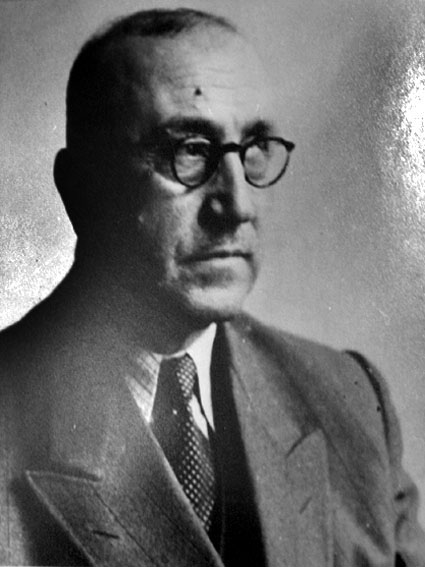On 19 May 1934, or 80 years ago, a military coup d’etat took place in Bulgaria. It reflected the authoritative trend that was spreading across Europe at that time and resulted in a series of vital changes, as far as the model of governing of the country was concerned. At the same time the conspirators failed to maintain the consistent policy that was actually necessary afterwards and in the end Tsar Boris III turned out to be the only winner of the situation.
What exactly happened 80 years ago?
The so-called People’s Bloc governed Bulgaria 5 years before the start of WW2. It consisted of four different parties that were never reconciled and the country was flooded in corruption and poverty. One had to be someone’s cousin or nephew, in order to get any administrative position, for instance. The peasantry - 80 percent of the population, tended to look at the dangerous left of the political spectrum due to starvation and misery. The period coincided with the Great Depression and in 1933, for the first time in Bulgaria there were over 150,000 unemployed…
Being aware of all this, 800 army officers from the secretly established Military Union decided to act, headed by the reserve colonel Damyan Velchev. Experienced headquarters officers developed a plan. The tsar got informed on the ongoing preparations and tried to interfere, but in vain.
An urgent sitting of the conspirators on May 17, took the decision for actions on May 19, at 2:40 am, as they feared that politician Alexander Tsankov might outrun them on May 21, when a national meeting of his movement would take place. The only condition set was the life of the monarch to be spared, if possible.
Two special squads of young officers were formed on the eve of the coup. The first one had to block the houses of those of their colleagues, who might resist, cutting the access to their detachments. The second group had to deal with Tsar Boris III himself. The four entrances of the palace were blocked at 2:30 am on May 19. At the same time military detachments under the command of the conspirators stepped out in the streets of Sofia and took over the main institutions, the post, the railway station etc. The password of the coup d’etat was “sabre”.
 Kimon Georgiev, a politician, who was close to Damyan Velchev and was to be the new premier, invaded the palace with Gen. P. Zlatev, carrying a decree for the new cabinet in his right pocket and a declaration for the tsar’s abdication – in his left one. Boris III welcomed the duo in his parade uniform and signed the decree. The coup ended without a single shot fired.
Kimon Georgiev, a politician, who was close to Damyan Velchev and was to be the new premier, invaded the palace with Gen. P. Zlatev, carrying a decree for the new cabinet in his right pocket and a declaration for the tsar’s abdication – in his left one. Boris III welcomed the duo in his parade uniform and signed the decree. The coup ended without a single shot fired.
The May 19 events had a serious impact on the political system in this country. Above all, the new government suspended the 1879 Tarnovo Constitution, banning all political parties, movements and organizations. This situation would be preserved up until the death of Tsar Boris III in 1943. At the same time some urgent, but also populist economic measures were taken, such as tax eases for farmers. A new rapprochement trend was also spotted, regarding Yugoslavia and the USSR. Some historians even claim that the coup d’etat was an attempt of the neighboring country to interfere in Bulgaria’s home policy. Another major consequence, somehow confirming this theory was the banning of the Internal Macedonian Revolutionary Organization, which carried out terrorist actions both here and in Yugoslavia and the extramural death sentence issued to its notorious leader Ivan “Vanche” Mihailov, who had to flee to Turkey.
After all, it turned out that the experienced diplomat Tsar Boris III would be the only winning party of the coup. The fact that the conspirators failed to ground a common political view and platform caused strife and scandals among them. The tsar used skillfully the situation and practically he took the power back on 18 April 1935, signing a decree for a government, headed by non-military Andrey Toshev. The tsar would remain the authoritative head of state up until his death in 1943.
Colonel Damyan Velchev had to spend a few months in Belgrade, trying persistently to restore the previous situation. On the night of 2 October 1935 he crossed the Yugoslavian – Bulgarian border, but none of the expected military detachments was waiting for him there, due to the fear of failure. Refusing to return, Velchev was nabbed and received a death sentence, but was later on pardoned by Tsar Boris III…
On January 6, the Bulgarian Orthodox Church is marking Epiphany. According to the Bible, on this day John the Baptist baptized Jesus Christ in the Jordan River. Traditionally, a festive Epiphany liturgy is held in churches, water is blessed, and then..
The fighting for Sofia within the framework of the Russo-Turkish War (1877-1878) began on December 25, 1877. On January 3, 1878, the city's commandant Osman Nuri Pasha began to withdraw from Sofia. His plans to set the city on fire were thwarted..
In its latest digital section “Buildings Tell a Story”, the Regional History Museum – Sofia presents the stories of iconic buildings in the center of the Bulgarian capital city, as well as of the people who once lived in them. The video initiative..
The Nikola Vaptsarov Naval Academy in Varna has marked 144 years since its founding. A period in which the educational institution has..

+359 2 9336 661
